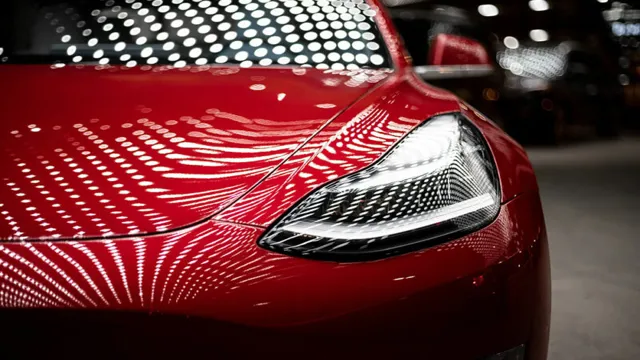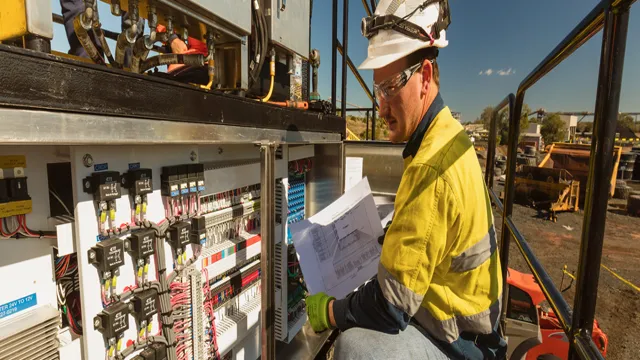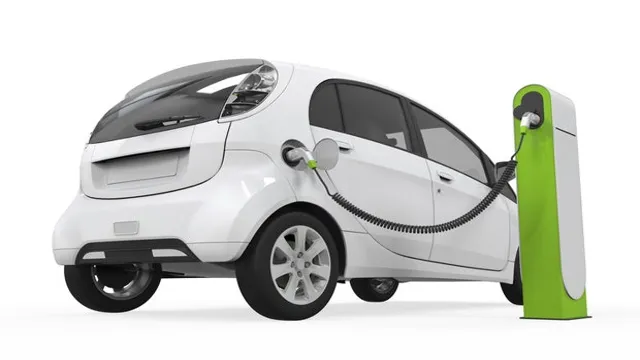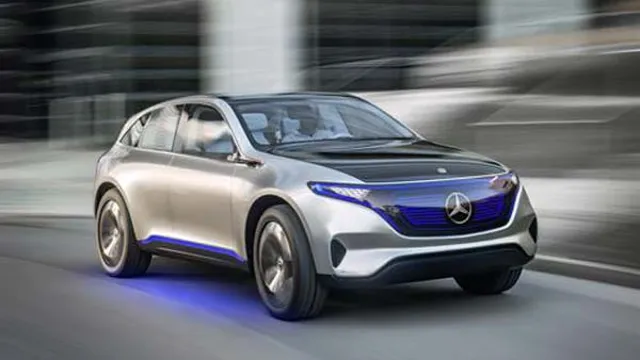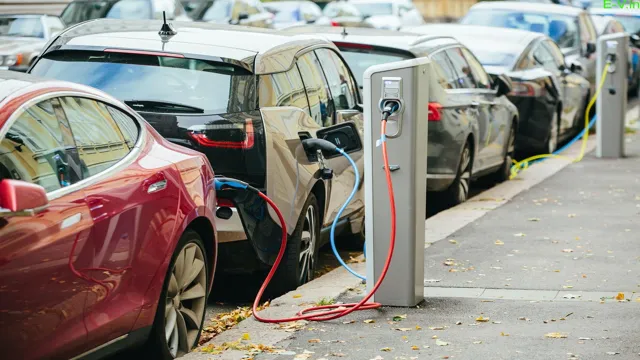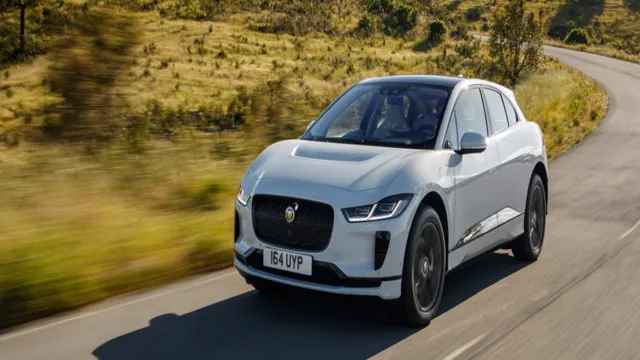10 Fascinating Technological Innovations in Electric Cars That Will Amaze You!
Electric cars have been a hot topic lately, and for a good reason. As the world experiences an increase in pollution and a decrease in non-renewable resources, the need for alternative energy sources becomes more pressing than ever before. The rise of electric cars is a step in the right direction, bringing us closer to a future with cleaner air and a healthier planet.
This technology is becoming increasingly popular as people become more aware of the harm that traditional gas-fueled cars can cause to the environment. In this blog post, we’ll explore how electric cars are changing the automotive industry and why they are quickly becoming the preferred choice for many drivers.
Electric Cars 101
Technological innovations in electric cars have come a long way since the first electric vehicle was invented in the 1800s. One of the key advancements in electric car technology is the development of high-capacity batteries, which enable these cars to travel longer distances without needing a recharge. Additionally, fast charging stations are now widely available, allowing electric car drivers to quickly recharge their vehicles during long road trips.
Another notable innovation is regenerative braking, which allows the car to recover energy that would otherwise be lost during braking and use it to recharge the battery. Electric cars are also becoming more efficient thanks to the use of lightweight materials in their construction, which reduces the amount of energy needed to power the vehicle. With all of these technological advancements, electric cars are quickly becoming a practical and sustainable choice for drivers looking for a cleaner transportation option.
Battery Technology: More Power, Less Charge Time
Electric cars are becoming increasingly popular as a way to reduce carbon emissions and lessen our dependence on fossil fuels. One major hurdle of electric cars, however, has been their limited range and long charging times. This is where advances in battery technology come in.
With more efficient batteries, electric cars can go farther on a single charge and charge up more quickly. One promising development is solid-state batteries, which use a solid electrolyte instead of a liquid one. This can lead to lower costs, longer life spans, and higher energy densities.
Another area of research is in sodium-ion batteries, which are cheaper and more sustainable than lithium-ion batteries, but still have a relatively low energy density. As battery technology continues to improve, we can expect electric cars to become more practical and appealing to a wider range of consumers.
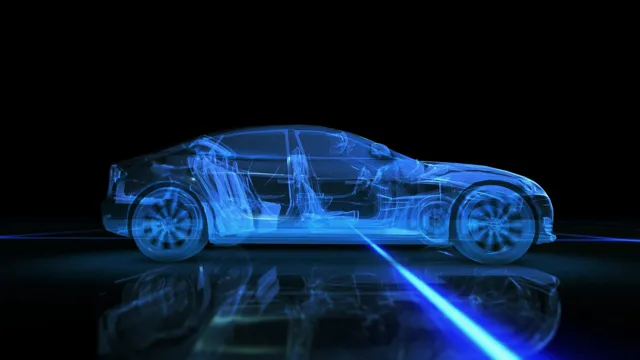
Autonomous Driving: The Future of Electric Cars
When it comes to electric cars, many people are initially concerned about their limited range and the need to constantly recharge their vehicles. However, the future of electric cars is looking brighter with the introduction of autonomous driving technology. With self-driving capabilities, electric cars can potentially travel farther distances without the need for human intervention.
This is because the car’s computer can optimize driving speed and efficiency, reducing energy consumption and increasing range. Additionally, autonomous driving technology could make electric cars even more convenient and accessible, especially for those who are unable to drive or have limited mobility. The combination of electric and autonomous technology represents the future of transportation, offering a sustainable and efficient solution for the world’s growing transportation needs.
The Latest Innovations
Technological innovations in electric cars have advanced significantly in recent years, transforming the way we think about transportation. One of the most exciting developments is the use of artificial intelligence (AI) and machine learning to optimize battery performance and increase range. This means that the car is able to learn the driver’s habits and patterns, and adjust its energy usage accordingly.
Another innovation has been the development of wireless charging, allowing drivers to power up their vehicles without needing to plug them in. This not only adds convenience but also helps to increase the lifespan of the battery by reducing wear and tear. Additionally, the use of solid-state batteries, which offer higher energy density and faster charging times than conventional lithium-ion batteries, is a promising area of research that could revolutionize the industry.
These technological advances are driving the shift towards electric mobility, making it an ever more compelling and practical option for consumers.
Wireless Charging: Convenience in Motion
Wireless charging is a game-changing technology that offers the ultimate convenience in charging your devices. It eliminates the need for cords and cables, and allows you to charge your device anytime, anywhere. With the latest innovations, wireless charging has become faster and more efficient.
Qi wireless charging is the most widely used standard for wireless charging today. It allows you to charge your device by simply placing it on a charging pad or dock. The latest innovations in wireless charging include the ability to charge multiple devices at once with a single charging pad, and the ability to charge your device even when it’s not in direct contact with the pad.
These advancements in wireless charging demonstrate how technology is evolving to make our lives easier and more efficient. It’s no wonder that wireless charging has become a standard feature in many new devices, including smartphones, smartwatches, and even cars. So if you haven’t tried wireless charging yet, what are you waiting for? Give it a try and experience the convenience of charging your devices in motion.
Solid-State Batteries: The Next Big Thing in Electric Cars
Electric cars are quickly becoming the transportation of choice for those looking to reduce their environmental impact. However, as with any new technology, there are still some drawbacks that need to be addressed. One such issue is the range of electric cars and the need for frequent charging.
This is where solid-state batteries come in. These batteries, which use solid electrolytes instead of the liquid electrolytes found in traditional batteries, offer a number of advantages over their predecessors. For one thing, they are much safer, as there is less risk of leakage or explosion.
They also have a higher energy density, meaning they can store more energy in the same amount of space. Additionally, they are more efficient, meaning they can charge faster and last longer. All of these factors make solid-state batteries a promising new technology for the future of electric cars.
Climate-Controlled Seats: The Future of Comfort
Climate-controlled seats are the new game-changer in the automotive industry, providing passengers with the ultimate comfort experience, no matter how hot or cold it may be outside. The latest innovations in climate-controlled seats are designed with advanced technologies that can adapt to your body temperature and preferences. These seats are equipped with cooling fans and heating elements that circulate air throughout the seat, ensuring a consistent and comfortable temperature.
Not only do climate-controlled seats offer temperature control, but they’ve also been designed with features such as massage functions and adjustable lumbar support, so you can personalize your comfort level even further. With climate-controlled seats, the future of car travel has arrived – gone are the days of feeling too hot or cold during long road trips. Whether you’re driving through the desert or cruising through the snow, climate-controlled seats will keep you comfortable and cozy.
The Future of Electric Cars
Technological innovations in electric cars are advancing at a rapid pace, and the future of electric vehicles looks bright. With battery technology getting more efficient and affordable, EVs are becoming increasingly popular among consumers. This is great news for the environment, as electric cars emit far fewer harmful pollutants than traditional gas-powered vehicles.
The success of electric cars can be attributed to a range of features, including safety features like advanced driver assistance systems, regenerative braking, and high-tech infotainment systems. As battery prices continue to decrease, electric cars are becoming an increasingly practical option for drivers. Additionally, many automakers are developing cutting-edge technologies such as wireless charging and solid-state batteries that will make EVs even more convenient and user-friendly.
Overall, the future of electric cars looks promising, and technological advancements will continue to drive the growth of this exciting industry.
The Race for More Efficient Electric Motors
The future of electric cars looks promising as scientists and engineers race to develop more efficient electric motors. The competition is fierce, and the prize is a motor that can power electric cars for longer distances without needing a recharge. One approach to increasing efficiency is to reduce the weight of the motor.
Scientists are experimenting with different types of materials, including aluminum, copper, and carbon fiber, to create lighter and stronger motors. Another strategy is to develop better battery technology, which can store and supply more energy to the motor. This includes developing smarter battery management systems that can optimize charging and discharging to extend battery life.
With so much research and development going into electric motors, we can expect to see more and more efficient electric cars hitting the road in the years to come.
The Emergence of Electric Car-Sharing Services
The emergence of electric car-sharing services is a sign of the changing times in transportation. As more people become aware of the need to reduce their carbon footprint and minimize their impact on the environment, electric cars are becoming more popular. Electric car-sharing services offer a convenient and affordable way for people to access these vehicles without the high cost of ownership or the inconvenience of charging them.
These services work by allowing users to rent an electric car for short periods of time and then return it to a designated location. The future of electric cars looks bright as more companies invest in sustainable transportation options. With the rise of electric car-sharing services, there is no longer a need to rely on traditional cars that produce harmful emissions.
Electric cars are not only eco-friendly but also offer a smooth and quiet ride. They are simple to use and require less maintenance, making them a great option for those who want to save money and help the environment. In the future, we can expect to see more electric car-sharing services and electric cars on the road, as people become more aware of the benefits of sustainable transportation.
Wrapping Up: The Future Looks Electric
As we reflect on the current state of the automotive industry, it’s clear that technological innovations in electric cars have revolutionized the way we travel. From increased energy efficiency to enhanced driving experience, electric cars have become a viable and sustainable option for consumers. With advancements in battery technology and charging infrastructure, the future looks bright for electric cars.
The push towards renewable energy sources and the growing awareness of the environmental impact of gas-powered vehicles have further accelerated this shift. The race to create affordable and dependable electric cars has led to fierce competition between manufacturers, resulting in rapid advancements in the industry. As we move towards an electric future, it’s essential to note the benefits of this shift, including reducing our carbon footprint and achieving a more sustainable planet.
The future is electric, and we’re excited to see what innovations lay ahead for the industry!
Conclusion
In conclusion, the technological innovations in electric cars show how far we’ve come from the days of humble mechanical engines and gas guzzling cars. From advanced battery technology to autonomous driving, electric cars offer a glimpse into a future where green transportation is not just a possibility, but a reality. As technology continues to advance, we’ll see even more exciting developments in electric cars that will make driving more efficient, safer, and more enjoyable for everyone.
So buckle up and get ready to ride into the future of transportation!”
FAQs
How have technological innovations impacted the efficiency of electric cars?
Technological innovations such as regenerative braking, improved battery technology, and aerodynamic designs have greatly increased the efficiency and range of electric cars.
What role do software and electronics play in modern electric cars?
Software and electronics are critical components in modern electric cars, controlling everything from battery management and charging to the car’s performance and handling.
What advancements have been made in charging electric cars?
Rapid charging stations, wireless charging, and bidirectional charging (where the car can also feed power back to the grid) are some of the latest advancements in electric car charging technology.
How have safety features in electric cars improved over time?
Electric cars now feature advanced safety features such as adaptive cruise control, forward collision warning, and pedestrian detection systems, which not only protect occupants but also other road users.
